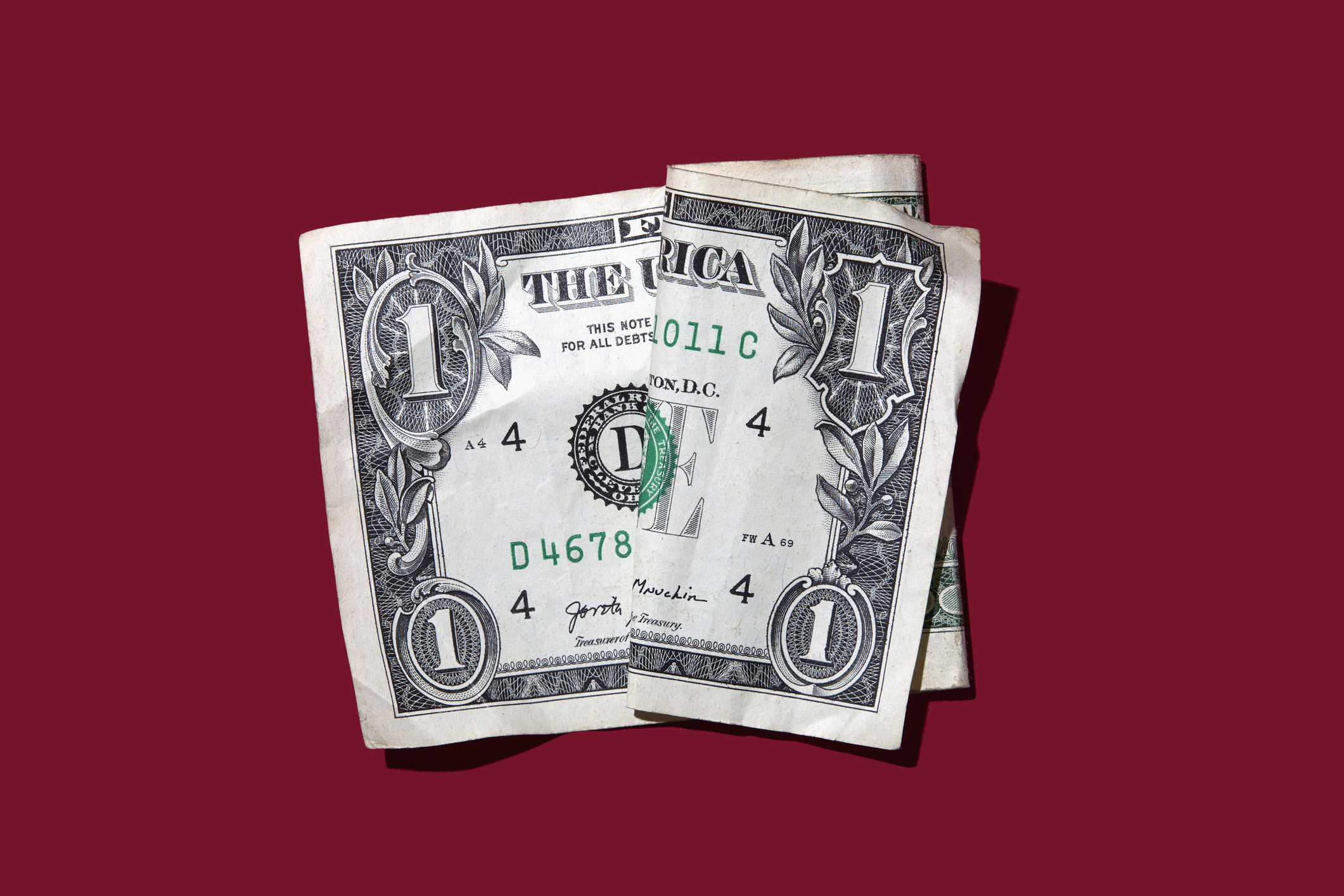Another IRS 1099-K Threshold Rule Change to Know for Tax Season
After years of uncertainty and changing requirements, the 1099-K reporting rules are now set, and the thresholds have changed since last year.


Profit and prosper with the best of Kiplinger's advice on investing, taxes, retirement, personal finance and much more. Delivered daily. Enter your email in the box and click Sign Me Up.
You are now subscribed
Your newsletter sign-up was successful
Want to add more newsletters?
If you earn money through a side hustle, run a small business, or get paid through apps like Venmo, PayPal, or Cash App, or sites like eBay, you’ve probably come across a lot of mixed messages about the 1099-K form.
You’re not alone. Over the past couple of tax seasons, many online sellers and freelancers have shared that same uncertainty.
Much of the confusion stemmed from IRS back-and-forth on the 1099-K reporting threshold. That included changed policies and postponed deadlines for implementing an initial “$600 rule,” which left sellers and payment platforms in limbo.
From just $107.88 $24.99 for Kiplinger Personal Finance
Become a smarter, better informed investor. Subscribe from just $107.88 $24.99, plus get up to 4 Special Issues

Sign up for Kiplinger’s Free Newsletters
Profit and prosper with the best of expert advice on investing, taxes, retirement, personal finance and more - straight to your e-mail.
Profit and prosper with the best of expert advice - straight to your e-mail.
But there’s some good news: Congress recently enacted a rule change designed to simplify things this year.
- Essentially, this latest approach returns to a more familiar and less burdensome framework.
- That shift should alleviate some of the stress for many individuals and businesses confused by more recent tax reporting requirements.
Here’s what you need to know about the latest change to 1099-K rules for your 2025 taxes, starting with a look at what the 1009K is.
Why you're getting a 1099-K
A 1099-K is an IRS tax form that reports payments you received through third-party networks or payment apps. Think of it as a way for the IRS to track income earned from business activities, like online sales or gig work, that is processed through platforms like PayPal, Venmo, or Cash App.
Over the past couple of tax seasons, there has been considerable confusion about when these forms were issued due to adjustments to IRS rules.
- Due to a pandemic-era law, the reporting threshold for Form 1099-K was initially supposed to drop to just $600, meaning payment platforms would have sent millions of tax forms to people with even small amounts of business or casual sales income.
- Since then, thresholds for reporting shifted multiple times, causing many people to receive unexpected 1099-K forms.
- For example, last year, the IRS announced a $5,000 threshold for 2024 taxes as part of a phase-in to implement the $600 reporting threshold.
Although the tax agency was attempting to implement the thresholds in stages, the back-and-forth made tax filing stressful and unclear for many sellers and some payment platforms.
1099-K threshold: What’s new for 2025 taxes?
As of July 4, 2025, the Trump/GOP tax and spending bill, often referred to by Trump as the “big beautiful bill” (BBB), became law. The megabill brings several tax changes.
One that will likely have many cheering is a return to the earlier, higher thresholds for 1099-K reporting from payment apps like (but not limited to) PayPal, Venmo, Cash App, Etsy, StubHub, eBay, and Airbnb.
So, for payments you receive for 2025 (sent to you in early 2026), you should only receive a Form 1099-K if:
- You receive more than $20,000 in gross payments and
- You conduct more than 200 transactions on a single platform within a year.
For most people paid via these third-party processing platforms — from part-time sellers to casual gig workers — this means no more unexpected tax paperwork just for the occasional online sale or side job.
Reinstating the 200/20,000 rule should reduce the paperwork burden on smaller sellers and gig workers while maintaining IRS oversight of higher-volume payment activity. It will eventually help lessen uncertainty.
What to do If you receive a 1099-K
If you get a 1099-K form in the mail, it means the IRS has a record of payments made to you through a third-party platform. Receiving the form doesn’t automatically mean you owe taxes on the full amount shown, though. It's just a report of gross payments received.
You still need to accurately track your expenses and income to determine your taxable profit.
Here are a few more key tips to keep in mind:
Keep thorough records: Save receipts, invoices, and transaction statements related to your sales or services. This documentation is essential for deducting business expenses and verifying your income.
Report all income: Report all your taxable income, whether you receive a 1099-K or not.
Match your records to the 1099-K: Use the form as a helpful cross-check, but don’t assume it’s error-free. Payment platforms sometimes report gross payments without subtracting fees, refunds, or chargebacks.
Consult a tax professional if needed: If your situation is complex or you’re unsure how to handle the form, a tax advisor can help you navigate tax deductions and credits, reporting, and compliance.
Being proactive and organized throughout the year can make tax time less stressful and help you avoid surprises if you do receive a Form 1099-K.
Read More
Profit and prosper with the best of Kiplinger's advice on investing, taxes, retirement, personal finance and much more. Delivered daily. Enter your email in the box and click Sign Me Up.

Kelley R. Taylor is the senior tax editor at Kiplinger.com, where she breaks down federal and state tax rules and news to help readers navigate their finances with confidence. A corporate attorney and business journalist with more than 20 years of experience, Kelley has helped taxpayers make sense of shifting U.S. tax law and policy from the Affordable Care Act (ACA) and the Tax Cuts and Jobs Act (TCJA), to SECURE 2.0, the Inflation Reduction Act, and most recently, the 2025 “Big, Beautiful Bill.” She has covered issues ranging from partnerships, carried interest, compensation and benefits, and tax‑exempt organizations to RMDs, capital gains taxes, and energy tax credits. Her award‑winning work has been featured in numerous national and specialty publications.
-
 Why Some Michigan Tax Refunds Are Taking Longer Than Usual This Year
Why Some Michigan Tax Refunds Are Taking Longer Than Usual This YearState Taxes If your Michigan tax refund hasn’t arrived, you’re not alone. Here’s what "pending manual review" means and how to verify your identity if needed.
-
 If You'd Put $1,000 Into Caterpillar Stock 20 Years Ago, Here's What You'd Have Today
If You'd Put $1,000 Into Caterpillar Stock 20 Years Ago, Here's What You'd Have TodayCaterpillar stock has been a remarkably resilient market beater for a very long time.
-
 Good Stock Picking Gives This Primecap Odyssey Fund a Lift
Good Stock Picking Gives This Primecap Odyssey Fund a LiftOutsize exposure to an outperforming tech stock and a pair of drugmakers have boosted recent returns for the Primecap Odyssey Growth Fund.
-
 Why Some Michigan Tax Refunds Are Taking Longer Than Usual This Year
Why Some Michigan Tax Refunds Are Taking Longer Than Usual This YearState Taxes If your Michigan tax refund hasn’t arrived, you’re not alone. Here’s what "pending manual review" means and how to verify your identity if needed.
-
 3 Smart Ways to Spend Your Retirement Tax Refund
3 Smart Ways to Spend Your Retirement Tax RefundRetirement Taxes With the new "senior bonus" hitting bank accounts this tax season, your retirement refund may be higher than usual. Here's how to reinvest those funds for a financially efficient 2026.
-
 5 Retirement Tax Traps to Watch in 2026
5 Retirement Tax Traps to Watch in 2026Retirement Even in retirement, some income sources can unexpectedly raise your federal and state tax bills. Here's how to avoid costly surprises.
-
 2026 Tax Refund Delays: 5 States Where Your Money Is Stuck
2026 Tax Refund Delays: 5 States Where Your Money Is StuckState Tax From New York to Oregon, your state income tax refund could be delayed for weeks. Here's what to know.
-
 Paper Tax Filers Face Long Wait as IRS Digitization Effort Stalls
Paper Tax Filers Face Long Wait as IRS Digitization Effort StallsTax Filing Last April, the IRS launched its Zero Paper Initiative to speed up paper tax return processing. The project isn’t going well.
-
 How One Extra Dollar of Income Can Cost You Thousands in Retirement
How One Extra Dollar of Income Can Cost You Thousands in RetirementRetirement Even modest changes in retirement income can raise Medicare premiums under IRMAA. Here’s how a small increase can affect your retirement costs.
-
 First the Penny, Now the Nickel? The New Math Behind Your Sales Tax and Total
First the Penny, Now the Nickel? The New Math Behind Your Sales Tax and TotalRounding Tax A new era of "Swedish rounding" hits U.S. registers soon. Learn why the nickel might be on the chopping block, and how to save money by choosing the right way to pay.
-
 Trump Tariffs Supreme Court Ruling: What's Next for Consumers and Retailers
Trump Tariffs Supreme Court Ruling: What's Next for Consumers and RetailersTax Law This landmark decision will reshape U.S. trade policy and could define the outer boundaries of presidential economic power for years to come.